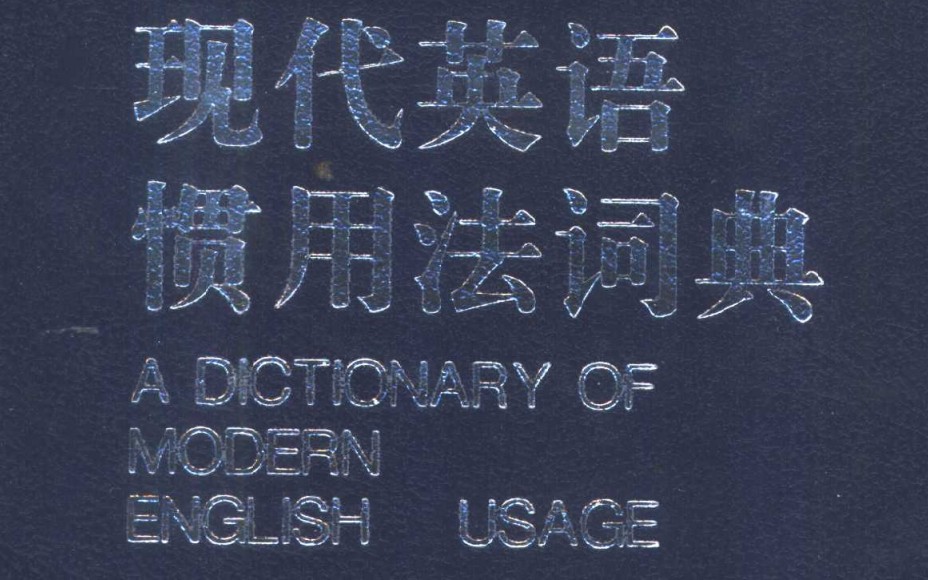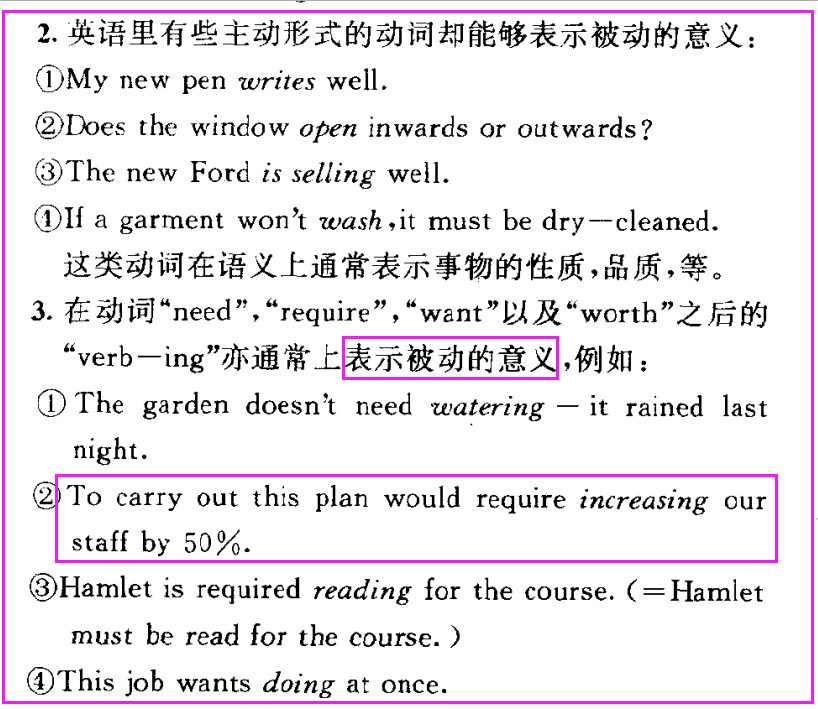辞书质疑(16):《现代英语惯用法词典》上的 require doing 例句分析得对吗
前面有网友提问《require doing与require to do的用法区别》,与此相关的问题,《现代英语惯用法词典》(李在铭著,现代出版社)在p437页认为下面一句中的 verb-ing 表示被动的意义:
To carry out this plan would require increasing our staff by 50%.
但我觉得上面一句中的 increasing 并不表被动意义,一是从意义上看它并不表被动意义,二是 increasing 后面接有宾语(况且它又不是双宾动词),怎么会表被动意义呢?我觉得这里的 increasing 是表主动意义,句意:执行该计划需要增加百分之五十的人员。
附《现代英语惯用法词典》相关截图:


另外,书中下面一句中的 reading 也不是动名词作 require 的宾语,其实这里的 required 是形容词,reading 是名词(“读物”):
Hamlet is required reading for the course. (required reading=必读书目)
对此大家怎么看?
最佳答案 2023-12-21 22:03
完全赞同蒋老师的分析。
1. require 后接动名词表示被动含义时,这个动名词一般是补充说明主语的。如:
All internal surfaces required cleaning.
这里cleaning 的对象是主语all internal surfaces。
To carry out this plan would require increasing our staff by 50%.
该词典将increasing解释为被动含义,不符合逻辑。
2. Hamlet is required reading for the course. =Hamlet is a required reading for the course.
此处冠词可有可无。其中的 required 显然是形容词。如果按照词典释义,这里的reading应该不可数,但当给一群人读的时候,又可以看作可数。
外媒例句:
使用冠词的例句:
1. His doctoral thesis, 'Reasons of State', was a required reading in courses on Indian foreign-policy making.
2. Vogler admits that his book is a required reading for Disney development executives.
不用冠词的例句:
1. Said's short and poignant introduction is required reading in graduate courses across several disciplines.
2. This terrific book is required reading for anyone interested in stone walls.
如果觉得我的回答对您有用,请随意打赏。你的支持将鼓励我继续创作!

- 3 关注
- 3 收藏,3557 浏览
- 蒋学文 提出于 2022-06-10 09:10
相似问题
-
 《高考英语备考1号·速效编》
《高考英语备考1号·速效编》
-
 《高考英语备考1号·写作编》
《高考英语备考1号·写作编》
-
 《高中英语晨读晚记》
《高中英语晨读晚记》
-
 《高中英语错题笔记》
《高中英语错题笔记》
-
 《零起点考大学英语》
《零起点考大学英语》
-
